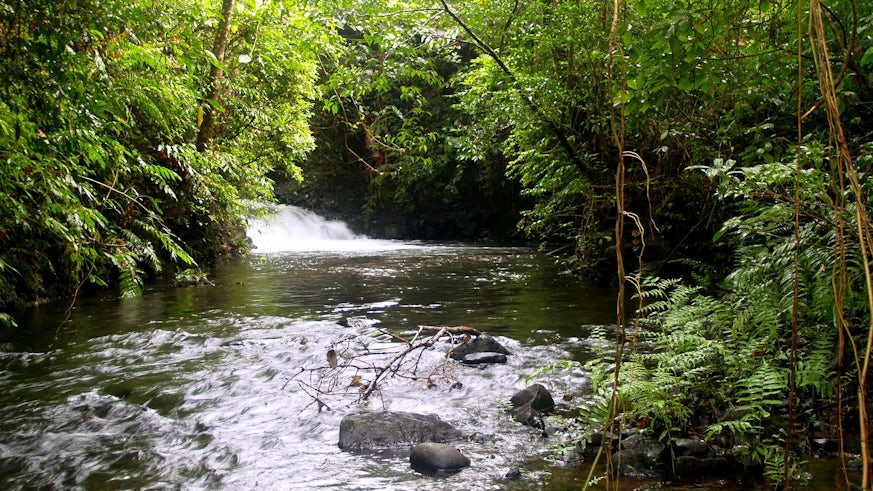Exposure to microplastics prolongs infections in freshwater fish
15 February 2022

New research highlights extent of detrimental effects of plastic and chemical pollution
Researchers at Cardiff University's School of Biosciences have shown that wild, freshwater fish, naturally infected with parasitic worms, suffer significantly prolonged infections when exposed to microplastics.
One of the lead authors of the work, Dr Numair Masud said: “Parasitic infections are a key factor impacting the welfare of freshwater organisms. Understanding how contaminants, like microplastic, influence disease resistance is something that is largely overlooked in ecological studies. Our research sheds new light on this topic.”
While plastic pollution is a hot topic when it comes to the ocean, it is less common to hear about its effect on freshwater species and habitats, even though concentrations of microplastics found in freshwater are typically much higher than those found in the sea.
Microplastics – particles between 1 µm and 5mm, which end up in the environment as plastic waste – are passively consumed by fish as water passes through their gills. The particles also act as sponges for other chemical toxins, such as herbicides, which are extensively used in agriculture and drain into rivers and streams.
The research also revealed that Roundup®, one of the most globally prevalent herbicides, significantly reduces parasitic burden in fish, but conversely, causes a high mortality rate in those fish already infected by parasites. Disturbingly, the work showed that fish fatalities occurred en masse when healthy, wild fish, uninfected by parasites, were exposed to both Roundup® and microplastics.
Freshwater fish are facing what has been termed a ‘silent extinction’; along with their habitats, species are being lost at a much higher rate than for other types of ecosystems. The paper, published in the journal Chemosphere, highlights how detrimental the combination of microplastics and chemical pollutants can be for wildlife.
Prof Jo Cable, Chair of Parasitology and Head of Organisms and Environment Group, said: “Much remains to be understood about plastic pollution within freshwater environments, including the scale of contamination, the types of plastics and their functional effects."
"Moreover, we need to disentangle the biological effects of raw plastic exposure from their associated chemical additives, such as plasticisers and thermal stabilisers. We still have our work cut out trying to address these questions, but this research is a good starting point.”